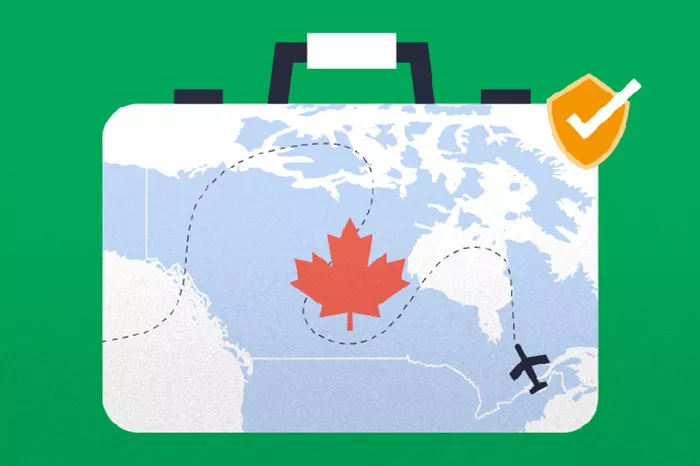When preparing for a trip to Thailand, one important question that arises is, “Do I need travel insurance to enter Thailand?” Although Thailand does not require travelers to have travel insurance for entry, having a policy is highly advisable. Travel insurance provides crucial protection against various risks, including medical emergencies, trip cancellations, and lost belongings. This comprehensive guide explores why travel insurance is essential for your trip to Thailand and details what coverage you should consider.
Understanding Travel Insurance
What is Travel Insurance?
Travel insurance is a type of policy designed to protect travelers from unforeseen events that could disrupt their trip.
Coverage Typically Includes
Medical Expenses: Covers costs associated with medical treatment and emergencies.
Trip Cancellations: Provides reimbursement for non-refundable travel expenses if you need to cancel your trip.
Lost or Stolen Luggage: Covers the cost of replacing lost or stolen baggage and personal items.
Emergency Evacuation: Includes costs related to emergency evacuation and repatriation.
Importance of Travel Insurance
Financial Protection
Travel insurance offers financial protection against high costs that may arise due to unexpected events. Without insurance, you could face significant out-of-pocket expenses for medical care or other emergencies.
Peace of Mind
Knowing that you are covered in case of an emergency allows you to relax and enjoy your trip. Travel insurance provides peace of mind by addressing potential risks and uncertainties.
Legal and Administrative Support
In addition to financial coverage, many travel insurance policies offer support services such as legal assistance, medical referrals, and emergency help, which can be invaluable when traveling abroad.
Travel Insurance and Thailand
Thailand’s Entry Requirements
Thailand does not mandate travelers to show proof of travel insurance when entering the country. However, having travel insurance is highly recommended to protect yourself from potential risks.
Medical Costs in Thailand
While Thailand has a well-developed healthcare system, medical costs for foreigners can be quite high.
Hospitalization Costs: Medical treatment, including hospitalization, can be expensive, especially for severe conditions.
Emergency Care: Immediate medical attention, including emergency care, may require substantial out-of-pocket expenses if you do not have insurance.
Trip Cancellations and Interruptions
Travel insurance can cover various scenarios that might lead to trip cancellations or interruptions.
Natural Disasters: Thailand, like many other countries, is occasionally affected by natural disasters such as floods and storms.
Political Unrest: In rare cases, political events or civil unrest might impact travel plans.
Personal Emergencies: Family emergencies or personal health issues may necessitate canceling or cutting short your trip.
Lost or Stolen Belongings
Losing your belongings while traveling can be a significant inconvenience.
Replacement Costs: Travel insurance can help cover the costs of replacing essential items such as clothing, electronics, and travel documents.
Emergency Purchases: If your luggage is delayed, insurance can provide funds for necessary purchases until your belongings are returned.
Emergency Evacuation
In extreme situations, you may need to be evacuated from Thailand due to natural disasters, political instability, or severe medical emergencies.
Evacuation Costs: Emergency evacuation can be very expensive, including transportation and logistics.
Repatriation: If needed, travel insurance can cover the costs of repatriating you to your home country for continued medical treatment or other reasons.
Types of Travel Insurance Coverage
Medical Coverage
This is a fundamental aspect of travel insurance, especially for international travel.
Emergency Medical Treatment: Covers the cost of medical treatment for illnesses or injuries sustained during the trip.
Hospitalization: Provides coverage for hospital stays, surgeries, and associated medical expenses.
Pre-existing Conditions: Check if your policy covers pre-existing medical conditions, as this can vary between insurers.
Trip Cancellation and Interruption
This coverage is essential if you need to cancel or cut your trip short.
Non-refundable Expenses: Reimburses you for non-refundable travel costs such as flights, accommodation, and tours.
Reasonable Causes: Covers cancellations due to specific reasons outlined in your policy, such as illness, family emergencies, or unexpected travel disruptions.
Baggage Loss and Delay
Insurance for baggage can alleviate the inconvenience of lost or delayed luggage.
Lost Baggage: Covers the cost of replacing lost or stolen items, including travel essentials.
Delayed Baggage: Provides compensation for emergency purchases if your baggage is delayed for a significant period.
Emergency Assistance Services
Many policies offer additional support services.
24/7 Assistance: Provides access to emergency assistance services that can help you find medical care or legal support.
Travel Assistance: Helps with arranging alternative travel plans, booking accommodations, or providing language assistance.
See Also: Can I Get Travel Insurance for Part of a Trip?
Choosing the Right Travel Insurance for Thailand
Assess Your Needs
Evaluate your specific needs based on your travel plans, health, and activities.
Trip Length: Longer trips may require more comprehensive coverage.
Health Status: Consider your current health condition and any potential medical needs.
Activities: If you plan to engage in adventurous activities, ensure your policy covers these activities.
Compare Policies
Different insurers offer varying levels of coverage and benefits.
Coverage Options: Compare what is covered in each policy, including medical, trip cancellation, and baggage loss.
Exclusions: Review any exclusions or limitations to ensure that the policy meets your needs.
Check Reviews and Ratings
Research insurers to find reputable companies with good customer service.
Customer Feedback: Look for reviews and ratings to gauge the reliability and responsiveness of the insurer.
Claim Handling: Choose an insurer known for efficient and fair claim handling.
Purchase Insurance Early
Buying insurance early ensures you are covered from the moment you make travel arrangements.
Policy Activation: Most policies are activated from the date of purchase or the date of travel, whichever comes first.
Coverage for Pre-trip Issues: Early purchase can provide coverage for issues that arise before departure, such as trip cancellations.
Conclusion
In conclusion, while travel insurance is not a mandatory requirement for entering Thailand, it is highly recommended for protecting yourself against potential risks and uncertainties during your trip. Comprehensive travel insurance provides financial protection and peace of mind by covering medical expenses, trip cancellations, lost belongings, and emergency evacuation. By understanding the various types of coverage available and selecting a policy that aligns with your needs, you can enjoy your time in Thailand with confidence, knowing that you are well-prepared for any unexpected situations that may arise.
FAQs
1. Is travel insurance mandatory for entering Thailand?
No, travel insurance is not mandatory for entering Thailand. The country does not require travelers to show proof of insurance upon arrival. However, having travel insurance is highly recommended to protect yourself against various risks, such as medical emergencies, trip cancellations, and lost belongings. Without insurance, you may face substantial out-of-pocket expenses for medical treatment or other unexpected events. Additionally, travel insurance provides peace of mind, knowing you have financial protection and support services if needed. While it may not be a legal requirement, it is a prudent choice for any traveler.
2. What does travel insurance typically cover for a trip to Thailand?
Travel insurance for a trip to Thailand typically covers several key areas to ensure comprehensive protection. This includes medical coverage for illnesses and injuries, which is crucial given the high cost of medical treatment abroad. It also provides coverage for trip cancellations or interruptions, which can help reimburse non-refundable expenses if you need to cancel or cut short your trip. Additionally, travel insurance often includes baggage loss and delay coverage, which helps replace lost or stolen items and compensates for delays. Emergency evacuation coverage is another important aspect, covering costs if you need to be evacuated due to serious medical conditions or natural disasters. Finally, many policies offer 24/7 assistance services to help with emergencies and travel disruptions.
3. How do I choose the right travel insurance policy for my trip to Thailand?
Choosing the right travel insurance policy involves several important steps. Start by assessing your specific needs, including the length of your trip, your health status, and any activities you plan to engage in. Compare different policies to find one that offers comprehensive coverage, including medical expenses, trip cancellations, and baggage loss. Pay attention to any exclusions or limitations in the policy to ensure it aligns with your needs. Research insurance providers to find reputable companies with positive customer feedback and efficient claims handling. Purchasing insurance early can also be beneficial, as it provides coverage from the moment you make travel arrangements and protects against pre-trip issues.
4. What should I do if I need to make a claim on my travel insurance while in Thailand?
If you need to make a claim on your travel insurance while in Thailand, follow these steps to ensure a smooth process. First, contact your insurance provider as soon as possible to report the issue and understand the claims procedure. Gather all necessary documentation, including medical reports, receipts, and proof of expenses, to support your claim. Fill out the claim forms provided by your insurer accurately and completely. Submit all required documents and forms promptly to avoid delays. Keep copies of all correspondence and documents related to your claim for your records. Follow up with your insurance provider to ensure your claim is processed and to address any additional information or questions they may have.
5. Are there any specific activities in Thailand that may not be covered by standard travel insurance?
Standard travel insurance policies may have exclusions or limitations for certain activities in Thailand. High-risk activities such as scuba diving, mountain climbing, or motorcycling may not be covered under a standard policy. If you plan to engage in these or similar activities, it’s important to check whether your policy includes coverage for them or consider purchasing additional coverage. Some insurers offer specialized policies or add-ons for adventure sports and high-risk activities. Review the terms and conditions of your policy carefully to understand what is covered and what is excluded. Ensuring that you have adequate coverage for all planned activities can prevent unexpected issues and provide better protection during your trip.






















